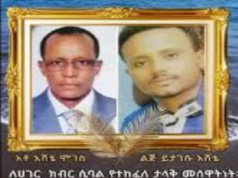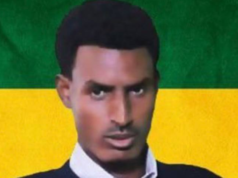Tewodros II, original name Kassa was emperor of Ethiopia (1855–68) who has been called Ethiopia’s first modern ruler by European historians. Theodros II was born into a country rife with civil war, and he defeated many provincial warlords before becoming emperor. The times were known as the Zemene Mesafint or “Age of the Princes”. During this era, warlords, regional princes, and noble houses vied with each other for power and control. His military experience started when he served in his half brother’s army. His half brother died in 1839 and Qwara was lost to the family. Tewodros resorted to become a shifta, one who refuses to recognize his feudal lord. He organized his own army in the plains of Qwara and then became too powerful to ignore. Not only did he reunify the various Ethiopian kingdoms into one empire, but he also attempted to focus loyalty around the government rather than the Ethiopian church, which he sought to bring under royal control. He worked to abolish the feudal system and create a new nobility of merit, dependent on the ruler alone.
Theodros II befriended two Englishmen, Walter Plowden and John Bell, who encouraged him in his zeal for progress, and told him of the greatness of Britain and assured him that Victoria’s England would be a good ally for him to cultivate. They also documented the life of the emperor and his idea of modernization. Plowden was replaced by the much less successful Consul Cameron, who arrived with a letter of thanks, a silver platter and two pistols from Queen Victoria. Tewodros, amazed that a huge Empire such as the British Empire could be ruled by a woman, was nevertheless very pleased by this gesture. Tewodros embarked on an ambitious plan to bring his people out of the middle ages. He had ambitions of building a network of roads to make communications in his mountainous Empire easier and quicker. He established a large workshop at Gaffat, south of Gondar, where he had Europeans attempt to make fire arms for his army. He tried to build a boat on lake Tana that was propelled by a pedaling system, and dreamed of establishing European modernism in is country. Tewodros tried to establish a more fair system of taxation, trying to lessen the burden on the peasantry. In 1862, King Theodore II of made a request to the British for munitions and military experts. He was a Coptic Christian who was regularly engaged in warfare with his Moslem neighbors. He thought that an infusion of expertise from the British could help his realm in this turbulent part of the world. With this in mind he sent a letter to Queen Victoria asking for artisans and gunsmiths. The letter was forwarded to London, and was deposited in a file in the Foreign Office, not shown to the Queen, and quickly forgotten. It would be a critical mistake on the part of the Foreign Office. Deeply insulted by the British failure to do exactly as they were told. The king was not pleased at all. He became even further infuriated when he found out that the British Consul, Captain Charles Cameron, had just returned back to Ethiopia after a visit to neighboring Egypt; A country that the King considered to be one of his enemies. So he seized Consul Cameron and imprisoned him. He declared that the Consul would not be freed until he received an answer to his letter. To emphasize his seriousness, Tewodros arrested all the Europeans in Ethiopia at the time and held them hostage demanding a response from Queen Victoria. They included besides Captain Cameron, and Italian named Pietro, the Englishman Dr. Henry Blanc who would write a fascinating book on his travails in Ethiopia, the German missionary Henry Stern, the Frenchman Prideaux, the Swiss born Kerans, as well as a few others. This was a big new in London and after a lengthy parliamentary debate, it was decided that something forcefull had to be done, so an expeditionary force was authorized to crush Tewodros and free the hostages.
The task was given to the Bombay Army, and Lieutenant-General Sir Robert Napier was given command of the expeditionary force. The force consisted of 13,000 British and Indian soldiers, 26,000 camp followers and over 40,000 animals, including the elephants. The force set sail from Bombay in upwards of 280 steam and sailing ships. The advance guard of engineers landed at Zula on the Red Sea, about 30 miles (48 km) south of Massawa. It took the British forces three months to trek over 400 miles (640 km) of mountainous terrain to the foot of the Emperor’s fortress at Magdala.
The Emperor in the mean time, had taken his captives to Magdalla, and fortified the citadel and awaited Napier and his forces. He had his huge canon, Sebastopol dragged up the escarpment to his fortress town and prepared to fight the forces of the English Queen. On April 10th, 1868, the British forces battled Tewodros II’s army, led by his beloved childhood friend and general, Fitawrari Gebriye at the Battle of Aroge. The Ethiopian army was beaten badly, and Gebriye was killed. Tewodros realized, after the battle from the heights of Magdalla, that he was out gunned and didn’t have a chance against Napier. He wrote a sad letter in which he described to Napier his lost dreams of improving his country and liberating the Holy Land from the Turks. Tewodros realized that his cause was lost, and that his doom was close. Seeing that all was lost, and that he was about to face the humiliation of captivity, Tewodros II, King of Kings and Emperor of Ethiopia had picked up the pistol sent to him years earlier by Queen Victoria, placed the barrel in his mouth and had shot himself on April 13, 1868. Napier arrived on the scene and angrily ordered the soldiers to halt the desecration of the Emperor’s body. He ordered a guard of honor to guard the body, and ordered another guard of honor to stand attendance on the widowed Empress Tiruwork and her little son Alemayehu Tewodros. All remaining prisoners at Magdalla were freed, and order restored. Napier than earned the respect of the Ethiopians by ordering a full military funeral for Emperor Tewodros at the Church of Medhane Alem (Savior of the World), complete with canon being fired and soldiers saluting the body as it passed.
Source: ven Rubenson, King of Kings: Tewodros of Ethiopia Addis Ababa: Haile Selassie I University, 1966
More: https://en.wikipedia.org/wiki/Tewodros_II


























